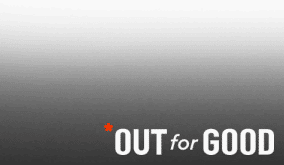
Before he became labeled “the Pope of Mope,” Morrissey was a twentysomething indie artist turning the music industry on its head as the lead singer of seminal ’80s English group The Smiths.
As the band garnered a dedicated following amid the new wave scene, the Smiths quickly made a name for themselves by incorporating veiled and not-so veiled references to homosexuality in their lyrics.
Their second single, “This Charming Man”, released in October 1983 and written by Morrissey and guitarist Johnny Marr, toyed with themes of queer attraction between a young man and an older gentleman.
Your dose of fabulosi-TEA
Subscribe to our newsletter for your front-row seat to all things entertainment with a sprinkle of everything else queer.
The cover of the single also featured an image of gay French actor Jean Marais from the 1950 film Orphée.
The song begins as the young bicyclist runs a flat and gets picked up by a more worldly “charming man” in a vehicle, rescuing him from having to walk all the way home.
“Punctured bicycle/ On a hillside desolate/Will nature make a man of me yet?” Morrissey croons. “When in this charming car/ This charming man.”
After an initial reluctance, the bicyclist accepts a ride in the older daddy’s luxury vehicle where “leather runs smooth on the passenger seat.”
A proposition to hang out further is inferred, but the young man is hesitant to accept the more experienced fella’s advances.
“I would go out tonight,” Morrissey sings, “but I haven’t got a stitch to wear.”
While there has been some debate about the intentions of both men, Morrissey’s lyrics were partly inspired by the 1972 film adaptation of Anthony Shaffer’s homoerotic play Sleuth. The movie stars Laurence Oliver as a cuckold author who exacts revenge on his wife’s lover, played by Michael Caine.
The line in the chorus “A jumped-up pantry boy who never knew his place” is lifted directly from the film.
Showing signs of his outspokenness from the get-go, Morrissey has said that he wrote “This Charming Man” in part to rebel against the superficial way he felt gays were being portrayed by Culture Club and others in the new wave scene at the time.
In a 1983 issue of New Musical Express, Morrissey told writer Barney Hoskyns: “I hate this ‘festive f*ggot’ thing … People listen to ‘This Charming Man’ and think no further than what anyone would presume. I hate that angle, and it’s surprising that the gay press have harped on more than anyone else. I hate it when people talk to me about sex in a trivial way.”
Following the disappointment of The Smiths’ first single “Hand in Glove”, “This Charming Man” rose to #25 on the UK charts and received critical praise with NME calling it “one of the greatest singles of the year.” And despite not having as much exposure in the US, the New York Times labeled it “superlative pop-rock.”
While “This Charming Man” didn’t receive mainstream success on US commercial radio it was a mainstay on college stations and New York’s trendsetting new wave station WLIR.
An early appearance on the popular British music TV series “Top of the Pops” further introduced the masses to Morrissey’s campy swagger as he came out in a pompadour, strands of pearls and lobbing gladioli.
In what may have been a moment of ’80s flower power, Uncut magazine called the performance “an unexpected pivotal cultural event in the lives of millions of serious English boys.” Jump up, pantry boys UK queers!
Following The Smiths breakup in 1987, Morrissey launched a successful solo career, but in recent years has become more infamous for controversial statements and opinions.
He’s also remained elusive of how he identifies despite constant speculation. While he’s discussed being attracted to men and women, and has had relationships with both, he’s refused to label himself. However, in 2013, he denied being gay and instead came out as a “humasexual.”
Regardless, for many queers of a certain age The Smiths, and Morrissey himself, offered a glimmer of melancholic hope at a time when there was dearth of representation in the media as we danced in our bedrooms dreaming of finding our own “This Charming Man.”
He knows so much about these things.
Related*


This suggestive ’80s-inspired music video starring Juan Pablo Di Pace still has us working up a sweat 20 years later
This month mark’s the 20th anniversary of Eric Prydz’s monster hit “Call On Me” and its amazing music video.
Sign up for the Queerty newsletter to stay on top of the hottest stories in LGBTQ+ entertainment, politics, and culture.















































